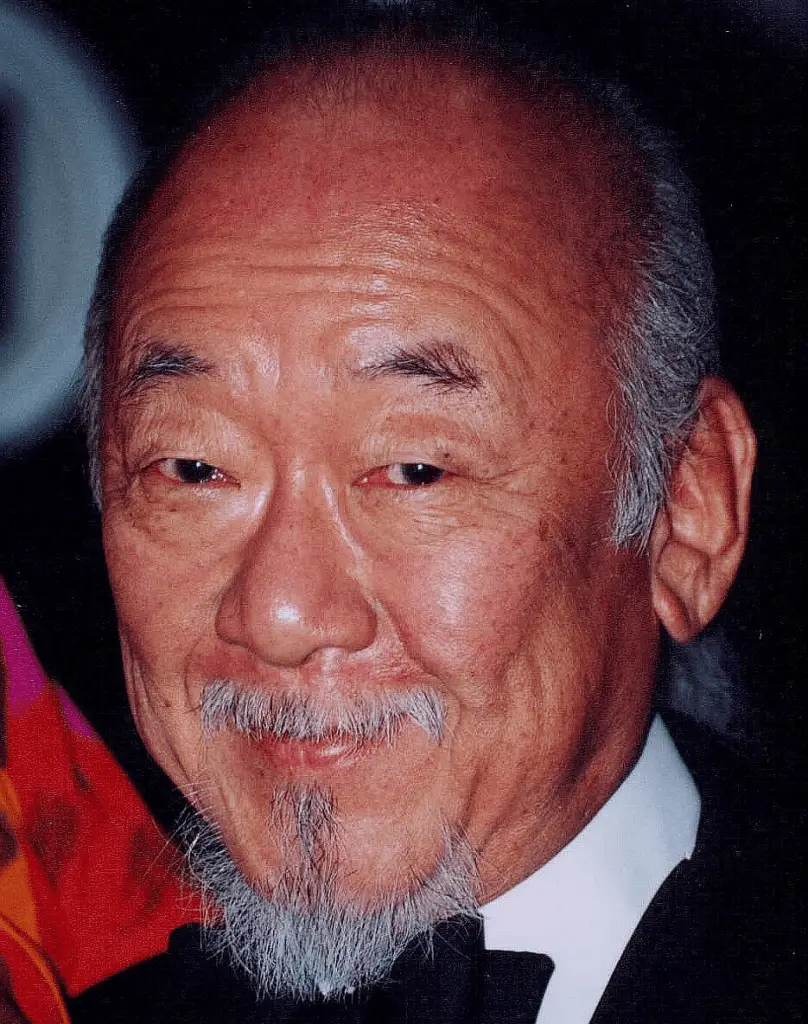
There are many styles of the martial arts and with this diversity of culture, art, and practice comes many ways to say practically the same thing. When it comes to the title given to a teacher of the martial arts, is there a general consensus or are there just as many differences as there are systems?
So, what is a martial arts instructor called?
- Sensei (sen-sey) is Japanese for a Karate instructor.
- Sabom (sah-bom) is Korean for a TaeKwonDo instructor.
- Sifu (shīfu) is Chinese for a Kung Fu instructor.
- Guro (goo-roh) is Tagalog for a Kali martial arts instructor.
- Sensei (sen-sey) is Japanese for a Judo instructor.
- Sensei (sen-sey) is Japanese for a Jujitsu instructor.
- Professor (profeˈsor) is Portuguese for a Brazilian Jiu Jitsu instructor.
- Coach is English for a Russian Sambo instructor.
- Coach is English for a Mixed Martial Arts instructor.
Although these may be the titles for teachers in each style, some of them are used and pronounced quite differently. Because most are not words from English, it stands to reason that some do not conform to its patterns of grammar and phonetics. There is also a bit of history and story behind several of these that is an interesting rabbit hole to go down.
Want to see the iconic Karate Kid movies with your family? You can get all of them for you home here on Amazon at this link.
Contents
- What Is A Karate Instructor Called?
- What Is A TaeKwonDo Instructor Called?
- What Is A Kung Fu Instructor Called?
- What Is A Kali Instructor Called?
- What Is A Judo Instructor Called?
- What Is A Jujitsu / Jiu Jitsu Instructor Called?
- What Is A Sambo Instructor Called?
- What Is An Mixed Martial Arts Instructor Called?
- The Martial Arts Instructor Title Takeaway…
What Is A Karate Instructor Called?
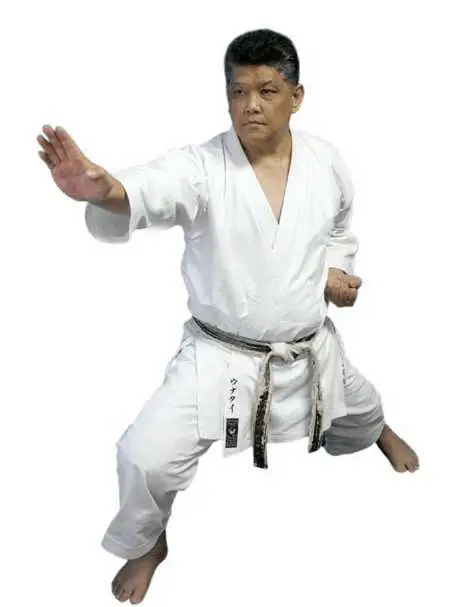
The Japanese art of Karate understandably has its own terminology that instructors and students choose to use. They count in Japanese and sometimes use the names of kicks, blocks, and hand strikes in this original language to the style.
The word that is used for teacher or instructor in Karate literally means ‘the one who comes before’. This is an honorific title with corresponding designations in other Asian languages like Korean and Chinese.
As we will see further on, Karate tradition has kept this direct honorific title for its teachers unlike Korean and Chinese styles which have opted for other titles.
The proper use of the word is as a stand alone title or as a suffix added after the instructors name. As in the case of Daniel’s sensei in the Karate Kid movies, Mr. Miyagi was an American informal usage. The proper term would be Miyagi-sensei. That being said, for English speakers this seems awkward and many place it before the name much like the word mister.
With advanced rank an instructor in Karate can reach the level of master instructor. The title given to those that attain this achievement is shihan (master instructor).
For more information on Karate associations, belt ranking orders, and times to black belt, see this link to my article.
What Is A TaeKwonDo Instructor Called?
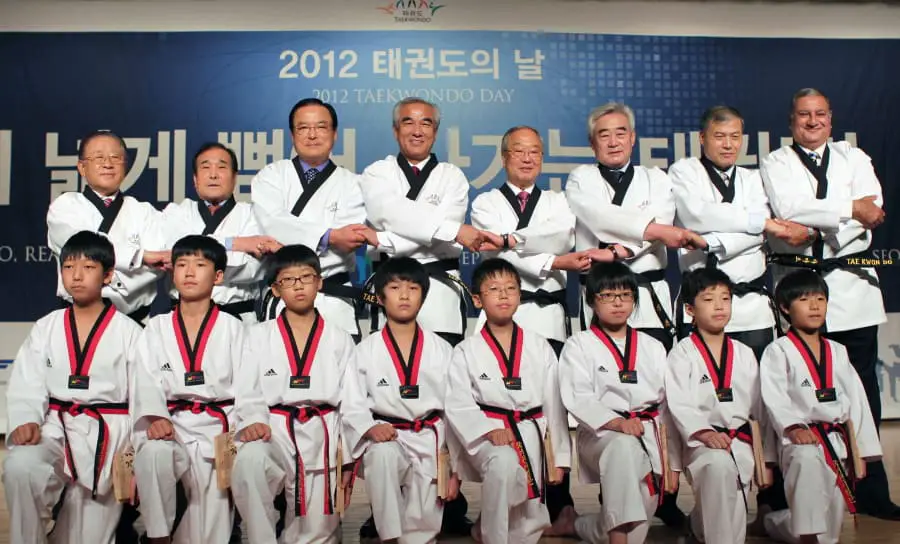
In TaeKwonDo students don’t use the direct honorific title in Korean for their instructors (which would be Seonsaeng), but opt for the more literal form of Sabom (teacher) instead. Yet, there is a further caveat that needs to be applied.
A student of TaeKwonDo would not simply call his instructor sabom. There needs to be an honorific suffix added to the word if it is directly used for an instructor charged with teaching a student. The suffix is nim (neem).
So, a TaeKwonDo, Tang Doo Do, or HapKiDo student wanting to get the attention of an instructor would say, “Sabomnim.” This used more in some schools and classes than in others, but is the appropriate title.
Interestingly, most Korean styles will generally use sabomnim for instructors and master instructors alike. This is because a full instructor in most Korean styles is considered a 4th degree black belt or above. In general though, you will find that most Korean styles utilize the English word ‘master’ for 4th degree black belts and above .
Any teacher below the rank of 4th degree is designated with the title boosabeom (boo-sah-bum) or is addressed as boosabeomnim. The term means assistant instructor. Also, a master instructor that owns his or her own dojang (training hall) is called kwanjangnim (kwan-chang-neem).
Want to know more about TaeKwonDo, its belt systems, and associations? Then follow this link to my article detailing all aspects.
What Is A Kung Fu Instructor Called?
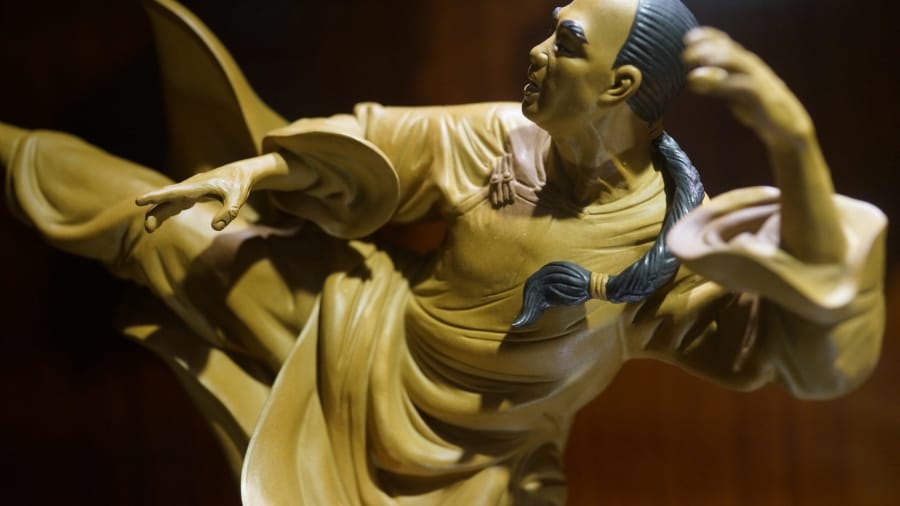
In the Chinese arts there is an honorific term that is again not widely used for a Kung Fu instructor. The term Xiansheng like with the Seonsaeng in Korean is replaced with a more familiar title more directly translated as teacher.
The word sifu in Chinese as with sensei in Japanese can be literally translated as ‘the one who comes before’. Since Chinese notoriously has several distinct dialects, it is not unusual to find a few variations in pronunciation.
In some traditional styles of Kung Fu/Wushu there is also a term for a master instructor. This term means the teacher of the teacher. Shigong can also be translated as ‘respected master instructor’.
What Is A Kali Instructor Called?
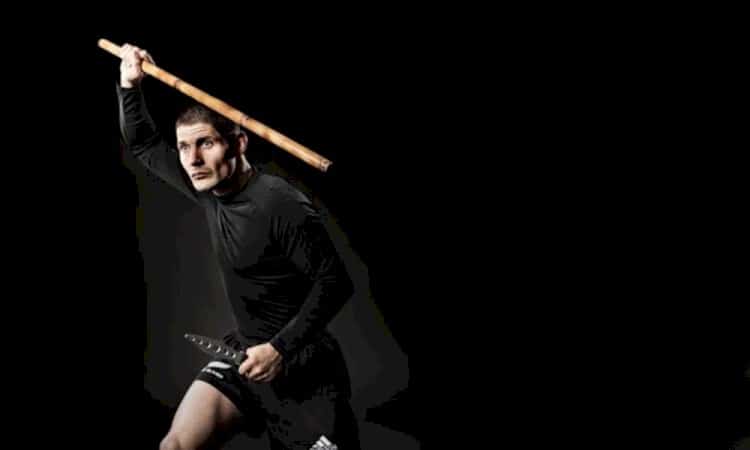
In Filipino Kali martial arts, there is a comparable position to the instructors of other systems. The title Guro is given to those that hold teaching positions. A literal translation would be teacher.
This term is not to be confused with the Indian Hindi version of the word Guru. Both terms have similar Sanskrit roots and connotate a teacher, though in Filipino Tagalog it doesn’t have the same religious connotation as in Hindi.
As well, in Hindi there is no further need for a separate designation for the position of a master. This is included in the Hindi term.
In Kali there is a separate master instructor position. Though Kali is a newer term used in Filipino martial arts, many forms also use this term. The word for master instructor in Kali is tuhon.
To learn more about Kali and other Filipino martial arts see my article on them here
What Is A Judo Instructor Called?
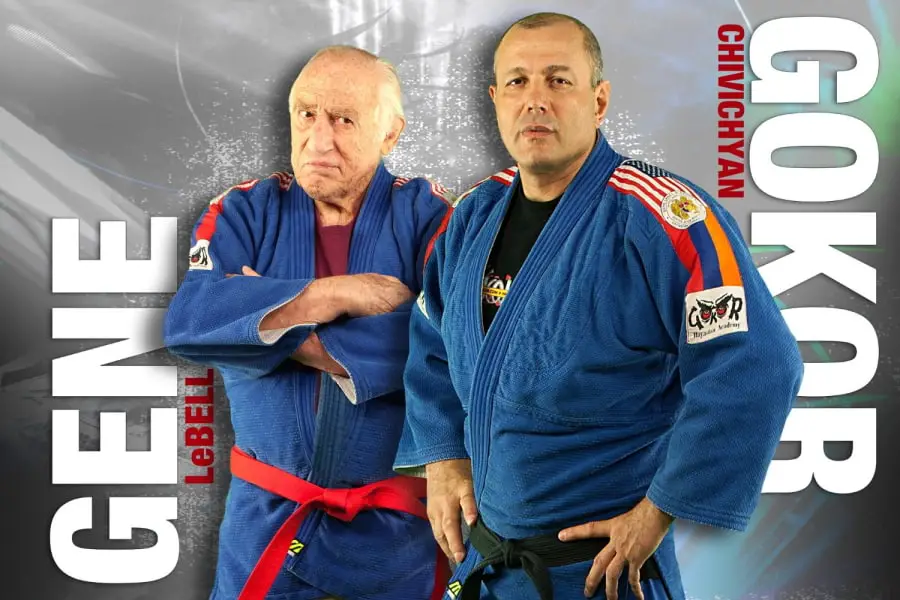
In Judo you are going to have many of the same honorific titles as you will in Karate since both are Japanese systems. So, for an instructor in Judo you will usually use sensei.
Yet, one note needs to be made here. Since its founding by Jigoro Kano in the early 20th century, Judo has been primarily a sport oriented art. Due to this fact, you may hear many students, and competitors especially referring to their sensei as ‘coach’.
This usually is designating his or her position as not only a teacher, but a leader of a competition team. You will find this with other sport oriented arts, but Judo leads the pack in founding of the martial sports. Not only this, but the belt ranking system we see today in so many styles was originally invented by Kano for his Judo students.
With TaeKwonDo, Judo, and even Karate having Olympic stages for their competitors, it will not be uncommon to here ‘coach’ used instead of sensei, especially in the United States.
What Is A Jujitsu / Jiu Jitsu Instructor Called?
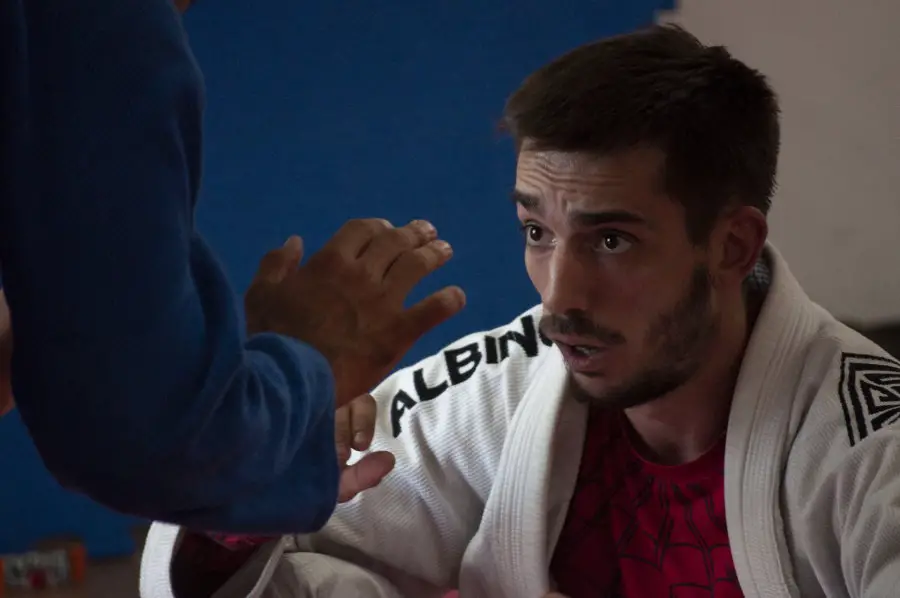
When we talk about jujitsu or the Old Portuguese phonetic variation of the spelling jiu jitsu, we have different traditions. This makes sense seeing that two main branches of jujitsu exist today: Japanese and Brazilian.
Japanese Jujitsu/Jujutsu
Firstly, the original style carries the jujitsu or even jujutsu spelling. This is the system that claims to have lineage stretching back to the Samurai and beyond and is distinctly Japanese.
With the Japanese systems of jujitsu again we will be using the title sensei for a teacher or instructor. The same traditions hold as with Karate and Judo which makes perfect sense. Judo in its entirety came from jujitsu and Karate was greatly influenced by it as Chinese influence and the indigenous ‘te’ forms of Okinawa combined.
As we saw with other Japanese styles, the word shihan is used for a master instructor. Different systems have slightly differing criteria for earning the title, but it is the most widely used.
If you would like to know more about the belt systems and styles of Japanese Jujitsu or Brazilian Jiu Jitsu see my detailed article here.
Brazilian Jiu Jitsu
Calling an instructor sensei in BJJ is not only acceptable, but customary in some schools. Since most of these classes are very instructor lineage based, it is highly dependent on the stendent’s instructor and even his instructor if the traditional Japanese term is used.
Just as Judo came entirely from jujitsu, Brazilian Jiu Jitsu found nearly all of its roots in the newaza (ground grappling techniques) of Judo. So, it shouldn’t be surprising when some teachers prefer the Japanese title.
On the other hand, many BJJ instructors will want to be called by another name. Professor is the Portuguese word for teacher and though its pronunciation is slightly varied, it is easy for native English speakers to assimilate since the word is practically the same in their language.
When it comes to the title of ‘master’, in Brazilian Jiu Jitsu the English is almost universally used. For a student addressing a 7th degree black belt (which is usually switched to a ‘coral’ red and black or red and white belt) the title will be ‘master’.
What Is A Sambo Instructor Called?
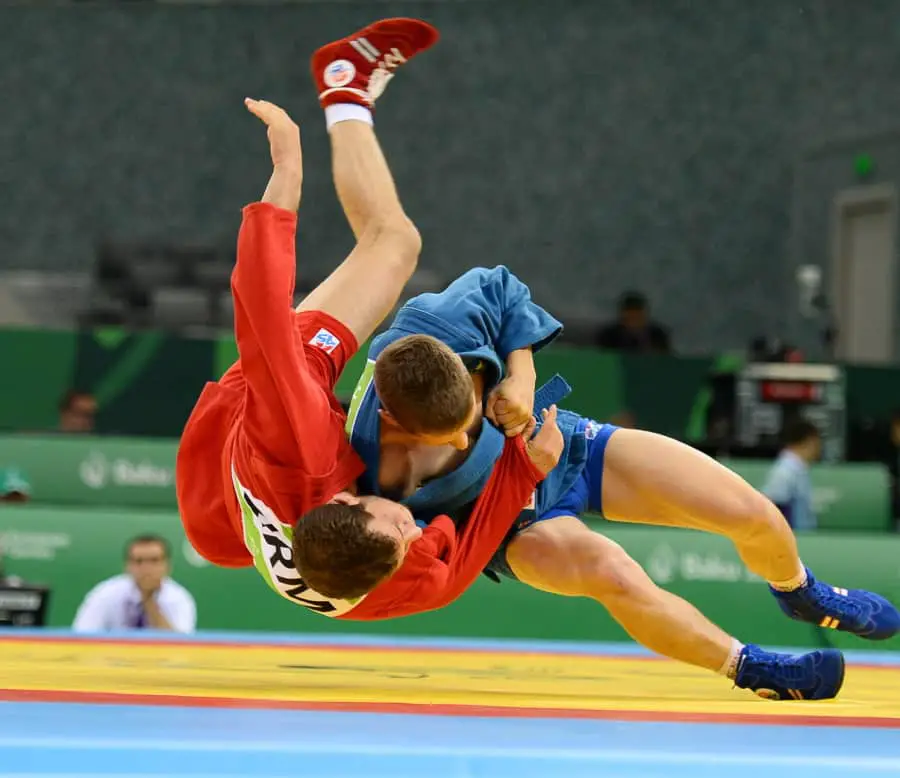
In the case of Russian Sambo, most of the time due to its hyper focus on national and international level competitions the word ‘coach’ is used. Of course there will be exceptions, but much of the time this is the case.
Sambo is a Russian hybrid jacket wrestling art that claims to have extracted the best techniques from Judo and wrestling. With these influences and the large sport emphasis it is no wonder a sport centered title would be the norm.
Since the use of the English sport title is common for teachers and instructors, advanced level leaders of groups and classes with high ranks are also known by the English title. Master is usually the designation for high ranking instructors.
What Is An Mixed Martial Arts Instructor Called?
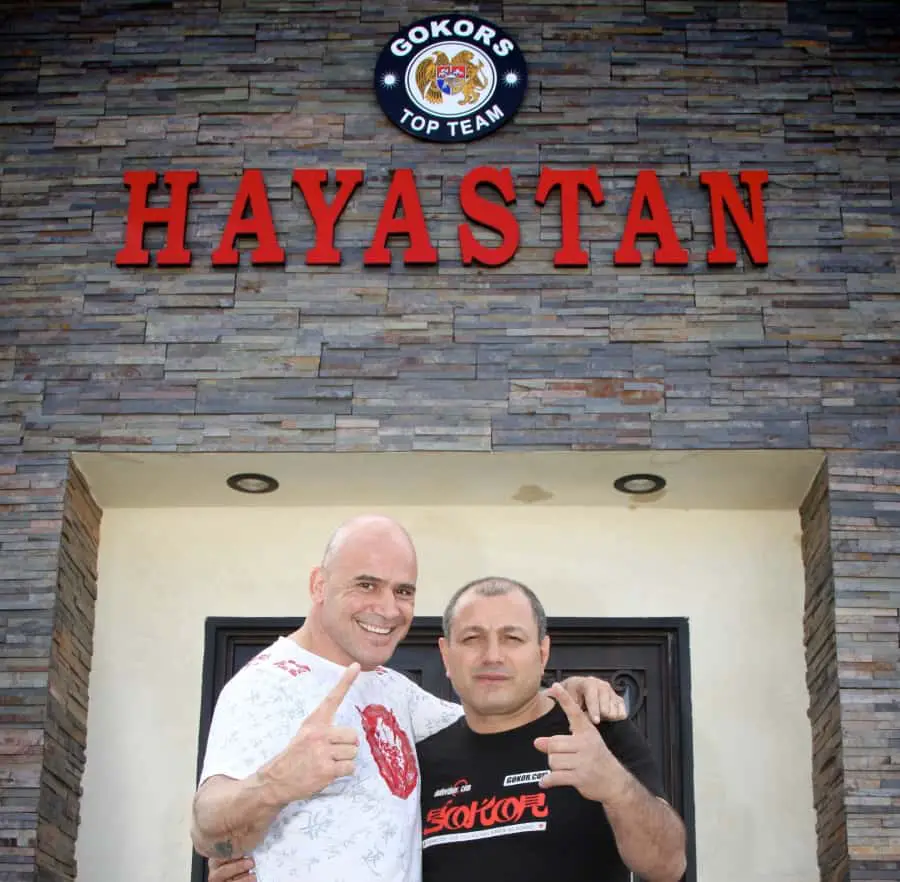
As with other sport based systems, MMA leans toward the titles that go along with its short history. You will find that most instructors are called ‘coach’. This is also the case since no rank is universally accepted in MMA.
The honor based titles of sensei, professor, and the like are actually designations of high rank accomplishment. Since MMA instructors do not have this built into their systems, it is likely that if one is called master it is due to ranking in one of these other styles.
Most of the time, those being called coach are class leaders or gym owners. Within these classes you will also find different instructors and coaches. Some will specialize in striking while others grappling.
Because of this, you may hear some of the titles from these styles from students addressing teachers. This is not an actual MMA title, but comes from other rank accomplishments in other systems.
The Martial Arts Instructor Title Takeaway…
As you can see there are numerous ways for students to address different instructors and sometimes this is the case even in the same style. Language, rank, and style lineage plays a huge role in which one should be used.
These titles are earned with many years of dedicated training. Because of this, it is usually not a good idea to get your instructor’s attention while on the mat or in the training area with, “Hey, Joe!”. You may know him as Joe outside of this setting, but while there guro, sensei, professor, sabumnim, or coach will be much more appropriate.
